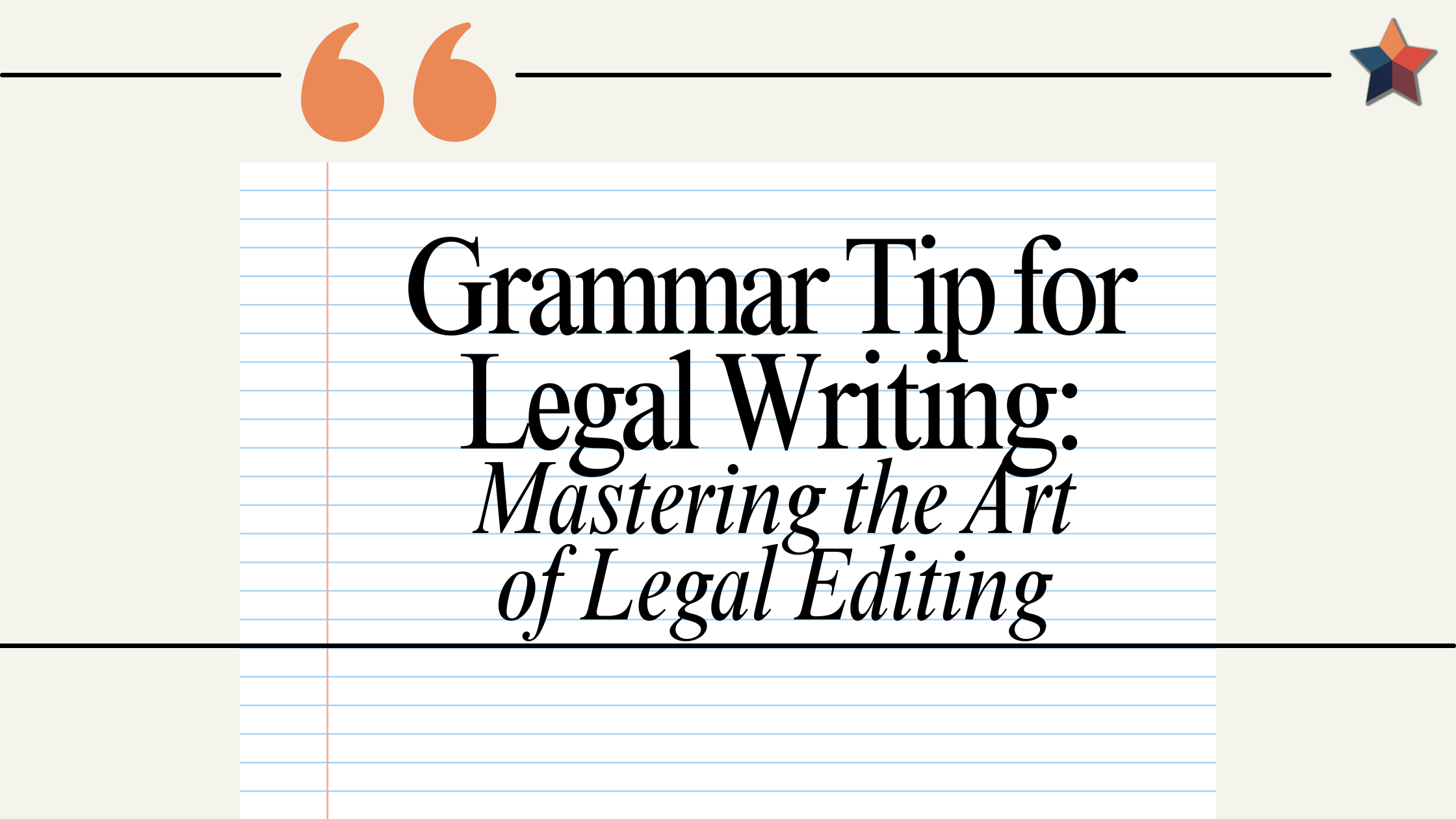The Art of Legal Editing: Precision, Clarity, and Professionalism
Published on July 12, 2023 From The Editors

Our team of editors at Texas Bar Books works in conjunction with publications attorneys and Texas lawyers to produce practice manuals, jury charges, desk books, and reference guides.
In our writing process, we find legal editing to be the final, crucial step that ensures documents are well-crafted, precise, and easy to understand. A meticulously edited legal document, whether it be a pleading, motion, email, or letter, can make all the difference in conveying an effective message, presenting a professional product, making a persuasive argument, and avoiding the court’s or your client’s ire.
The National Law Review recently singled out a federal case in which the court took issue with the defendant’s grammar and spelling errors, noting, “the court denied a Defendant’s motion to dismiss but not before chiding the Defendant’s counsel—calling him out by name in the opinion—for submitting a brief ‘riddled with spelling mistakes and ungrammatical sentences…’”
In this blog post, we will explore the importance of legal editing, discuss a few key techniques for improving editing skills, and provide practical tips to enhance the quality of legal writing.
The Importance of Legal Editing
Legal editing serves multiple purposes, including enhancing clarity, eliminating ambiguity, improving readability, and ensuring compliance with legal standards. By carefully reviewing and editing our work, we can eliminate errors, refine arguments, enhance structure, and ultimately enhance the overall quality of our legal documents.
Key Techniques for Effective Legal Editing
Review for Clarity and Precision
Legal documents should be written in a concise and precise manner. Ensure that sentences are clear, avoid excessive use of legal jargon, and maintain a consistent tone throughout the document.
Ensure Consistency
Maintain consistency in terminology, style, and formatting to create a cohesive and professional-looking document. Check for consistent spelling, capitalization, and citation formats throughout.
Eliminate Ambiguity
Ambiguity in legal writing can lead to confusion or misinterpretation. Scrutinize the document for any ambiguous language, vague clauses, or unclear references, and revise them to provide clarity and precision.
Focus on Mechanics
Pay close attention to all grammar and syntax issues including spelling, punctuation, and capitalization. Correct any errors in sentence structure, subject-verb agreement, and verb tenses to enhance readability, professionalism, and clarity.
Practical Tips for Effective Legal Editing
Take a Break
After completing the initial draft, take a break before starting the editing process. This enables even the author to approach the work with fresh eyes and a clearer perspective.
Read Aloud
Try reading the document aloud. This can help identify awkward phrasing, run-on sentences, or missing punctuation. This technique can also assist in catching any inconsistencies or unclear statements.
Seek Feedback
Consider seeking feedback from colleagues or mentors who can provide an objective review. Their insights can help identify areas for improvement that might have been overlooked.
Use Technology
Take advantage of grammar and spell-check tools. However, remember that technology is not foolproof, so always manually review as well.
Legal editing is an essential skill for every legal professional. By applying these techniques and tips, we can refine our legal documents, ensuring precision, clarity, and professionalism. Remember, even the most experienced lawyers benefit from careful editing, so always prioritize this final step in the legal writing process.

Elizabeth Floreani
Elizabeth Floreani is an editor at Texas Bar Books. She has worked as an educational consultant and community specialist in ed tech, taught secondary English and journalism, facilitated gifted and talented learning programs, coached chess and robotics teams, and taught violin. When she isn’t poring over legal manuals, Elizabeth loves spending time with her husband and children, her three pups, and four hens!